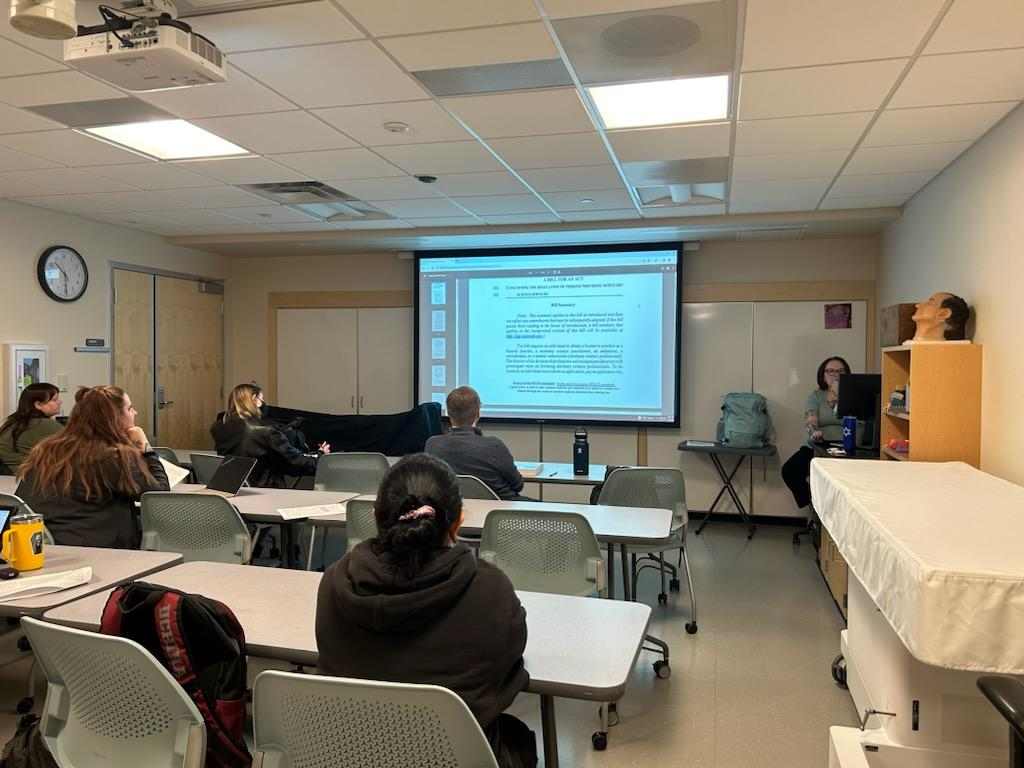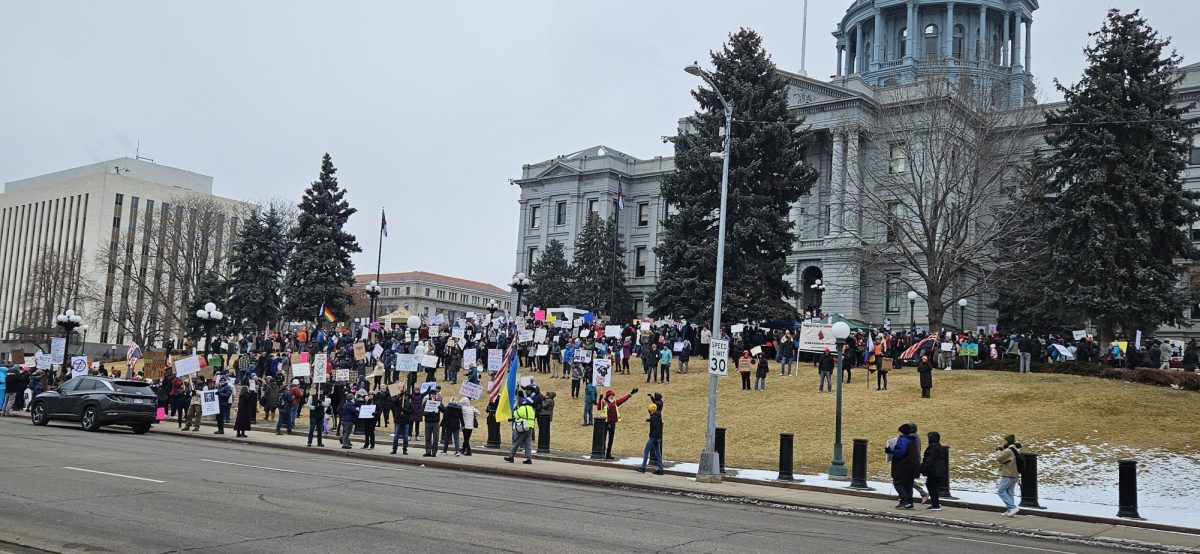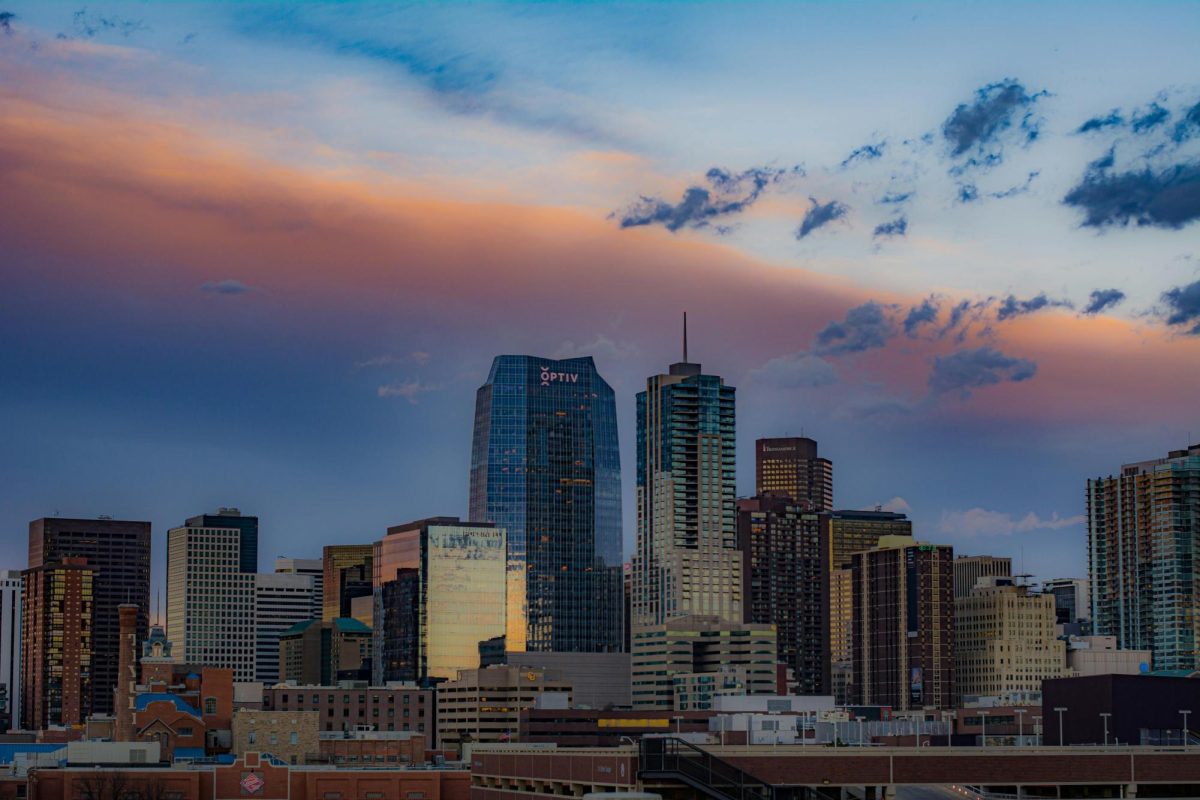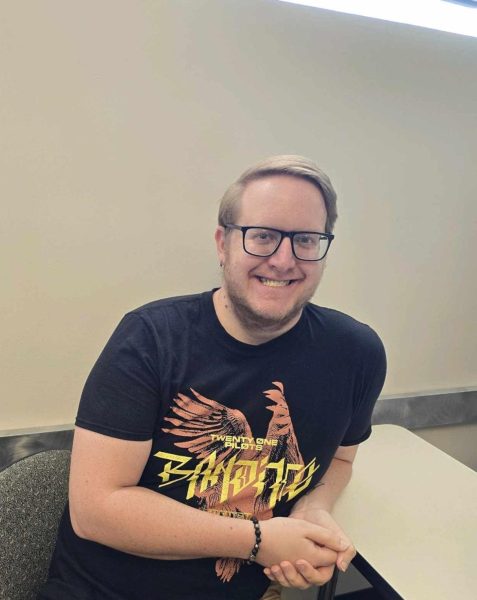You’re driving through town and pass by a mortuary. You ask yourself, “I wonder what exactly they do in there”? I’m sure that many of us have asked ourselves this question once or twice. Throughout history, the position of a mortician was seen as being a morbid profession that many people tried their best to not think about. While this may still be the case, the job of a mortician and the mortuaries that they work out of are vital to society. Without morticians, the bodies of the deceased would not be tended to and be ready for their funeral.
Did you know that ACC has a mortuary department where students can learn how to perform the various procedures that need to be done before the funeral itself? On the second floor of the main building of the Littleton campus sits the science department which contains various courses, one of which is the mortuary sciences program. Students in this program learn how to do things to prepare the recently deceased person for their funeral; this includes learning how to embalm a body, fill out death certificates and even learn the vast history of the field of mortuary sciences.
When asked why she chose to switch from mortuary work to teaching, Adjunct Mortuary Sciences Professor Beth Myklebust, interviewed over email, says it was due to her desire to share her love for the profession. Though she has worked at several funeral homes, such as Horan and McConaty, Myklebust decided that she wanted to change gears and teach prospective morticians about her work.
“I loved, loved, loved the work I was doing in the mortuaries,” Myklebust said in an email, “but I wanted to stretch myself and share my passion and love for this amazing industry with students and those who might not have a lot of knowledge in the field of mortuary science,” says Myklebust. “My hope was to ignite that same type of passion through teaching to up and coming students in the field.”
Though Myklebust didn’t always want to be a mortician.
“My interest came about in the mortuary science field later in my life. I had been a mostly full-time mom raising my two sons and when they were old enough, I obtained my phlebotomy certificate … and, as they say, the rest is history,” Myklebust added.
Though many of us may consider ourselves modern people with modern points of view, we still might view the role of a mortician as odd or strange, but Myklebust says that people of her profession are just like everybody else.
“We behave like every other person out there doing their job. We morticians, undertakers, embalmers, funeral directors, whatever you want to call us are just like every other person … going to a job every day, having good and bad days, having fun at work, telling jokes, laughing and all the while doing our jobs to the best of our ability… answering the phones, and receiving and sending a ton of emails.” Myklebust continues, “We just have one extra bit on our plates … making sure every deceased person that comes through our doors gets a proper, dignified funeral service and burial while making sure we take the best of care of their families.”
Many mortuaries and crematoriums have come under the spotlight lately due to the misuse of funds and the mistreatment of bodies that employees were trusted with. Incidents like the ones in Littleton and Colorado Springs will most likely paint businesses like these in a bad light for years. While these are terrible examples of people in the profession, Myklebust says that not all morticians are like that.
“We are so often negatively portrayed in television shows and movies, but we are not like that. We have gotten some pretty bad press lately here in Colorado, but not all of us are bad apples, the majority of us are some of the best people I know,” Myklebust concluded.
As with every other degree program at Arapahoe Community College, the professors in the mortuary sciences program strive to equip their students with everything that they need before going boots on the ground into the field. Mortuary student Haley Evans says that it’s not always the most popular topic in conversations.
“People tend to avoid having a conversation about death, it makes most people uncomfortable for many reasons. One of the questions that do come up often is ‘How would you like to be buried?’” says Evans.
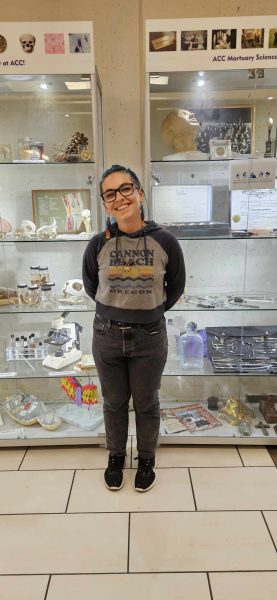
The general public seems to agree with her. According to a 2019 article at The Seattle Times, “while 92% of people believe talking with their loved ones about end-of-life care is important, only 32% of people do so. Similarly, while 97% of people say it’s important to put their wishes in writing, only 37% of people have such written documentation.”
Incidentally, they’re both right. It’s a well-known fact that the subject of death makes most people uncomfortable; thinking about family members, pets, and even yourself dying is a saddening topic, but it’s also a part of life and a necessary conversation that we all need to have one day. Of course, Evans and her classmates strive to end the stigma of said conversations.
When asked if mortuary sciences is considered a weird field of study, Evans responded, “Most people will say, ‘Well somebody has to do it’ with a nervous shrug. Many times, while trying to change subject. Even had a professor here put an X up with their fingers in an attempt for me to stop talking about my degree, which they asked me about. I found it very funny, and I get it. Talking about death can be really hard.”
These conversations, while weird and unpleasant, are necessary to keep society going the way that it needs to be. With ACC teaching their students subjects like mortuary sciences, the conversation of death and what happens after might be more accepted in modern society.



